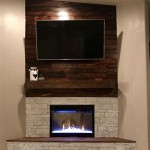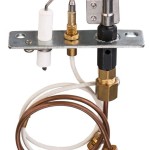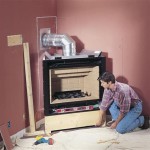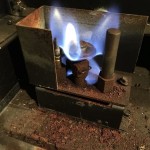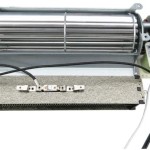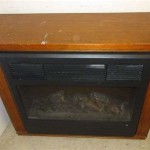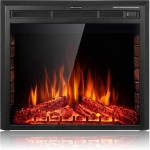Hole on the Wall Fireplaces: A Comprehensive Guide
Hole on the wall fireplaces have gained immense popularity in recent years due to their sleek aesthetic, space-saving design, and modern appeal. These fireplaces offer a mesmerizing visual experience while providing warmth and ambiance to your living space. Here's a detailed guide to help you understand the essential aspects of hole on the wall fireplaces:
Types of Hole on the Wall Fireplaces
Hole on the wall fireplaces come in various types, each with its unique characteristics and advantages. The most common types include:
- Electric: Electric fireplaces are convenient and easy to install. They do not require a chimney or gas line and can be operated remotely using a remote control.
- Gas: Gas fireplaces provide a more realistic flame than electric fireplaces. They require a gas line and proper ventilation but offer a higher level of heat output.
- Ethanol: Ethanol fireplaces burn liquid ethanol fuel and do not require a vent or chimney. They are portable and can be placed anywhere in your home.
Key Features to Consider
When selecting a hole on the wall fireplace, consider the following essential features:
- Size: Determine the appropriate size of the fireplace based on the dimensions of your room.
- Fuel Source: Choose the fuel source that best suits your needs and lifestyle.
- Heat Output: Consider the heat output of the fireplace to ensure it provides sufficient warmth for your space.
- Remote Control: Opt for a fireplace with a remote control for convenient operation.
- Safety Features: Look for safety features like overheating protection and automatic shut-off to ensure the safe use of your fireplace.
Installation Process
The installation process of a hole on the wall fireplace can vary depending on the type of fireplace you choose. Here's a general overview:
- Prepare the Wall: Cut a hole in the wall based on the dimensions of your fireplace.
- Position the Fireplace: Insert the fireplace into the hole and secure it in place.
- Connect the Fuel Source: For gas fireplaces, connect the gas line. For electric fireplaces, connect the power cord.
- Finish and Trim: Add the necessary trim around the fireplace to complete the installation.
Maintenance and Care
Regular maintenance is essential to ensure the optimal performance and longevity of your hole on the wall fireplace. Here are a few maintenance tips:
- Clean the Glass: Regularly clean the glass front of the fireplace using a glass cleaner.
- Inspect the Fuel Source: For gas fireplaces, check the gas line and connections for leaks. For electric fireplaces, inspect the power cord and connections.
- Remove Dust and Debris: Use a vacuum cleaner to remove dust and debris from the fireplace.
- Professional Inspection: Schedule regular professional inspections to ensure the safe and efficient operation of your fireplace.
Conclusion
Hole on the wall fireplaces are a stylish and practical addition to any modern home. By understanding the different types, key features, installation process, and maintenance requirements, you can make an informed decision when choosing the perfect fireplace for your space. Whether you prefer the convenience of electric, the realism of gas, or the portability of ethanol, there's a hole on the wall fireplace to suit every taste and requirement.

Edinburgh Fireplaces Hole In Wall Modern Design

Hole In The Wall Installation Guide Direct Fireplaces

Gazco Studio Edge Hole In Wall Gas Fire York Fireplaces Fires

Hole In The Wall Gas Fires Fireplace Saver

Hole In The Wall Installation Guide Direct Fireplaces

Hole In The Wall Gas Fires Fireplace Saver

Hole In The Wall Installation Guide Direct Fireplaces

840 Hole In The Wall Fireplace Gas Fire Modus

Hole In The Wall Gas Fires London Wimbledon Enviro Flame

Flavel Rocco Balanced Flue Hole In The Wall Gas Fire Direct Fireplaces
Related Posts

